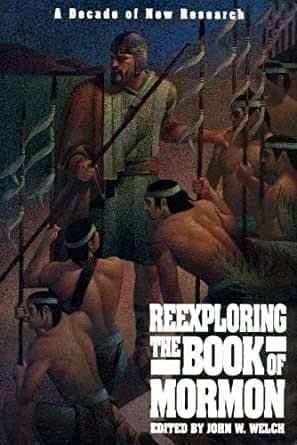Book
85 Chapters

Mosiah 2:28 “at this period of time when I am about to go down to my grave”
Scholars have recently taken an interest in the similarities that exist in the farewell speeches of many ancient religious and political leaders. Certain themes appear consistently in these farewell addresses, as if the speakers were following a customary pattern. These themes are to be found to an equal or greater extent in the farewell speeches of the Book of Mormon.
William S. Kurz has published a detailed study comparing twenty-two addresses from the classical and biblical traditions.1 He has found that in Greco-Roman writings, the dying speaker, usually a philosopher or statesman, was concerned with suicide, the meaning of death, and life after death. However, in biblical farewell addresses, the speaker, typically a man of God, focused on God’s plan, his people, and covenants, or on theological interpretations of history. While some elements are peculiar to one or the other tradition, Kurz has identified twenty elements common to the farewell addresses in general (listed on following pages).
Although Kurz knows no single speech that contains all of these elements, some contain more than others. Moses’ farewell speech contains sixteen elements (see Deuteronomy 31-34); Paul’s, fourteen (see Acts 20); and Socrates’, eleven.
It is remarkable that King Benjamin’s oration contains as many or more elements of the ancient farewell address than any of Kurz’s examples. Unlike those other texts, Benjamin’s speech was recorded in full and was precisely preserved. The report of Benjamin’s address is not a paraphrase and is longer and more detailed than such addresses found in biblical accounts. Sixteen elements of the ideal ancient farewell address appear directly and others may be implied.
Kurz signals four of his twenty elements as particularly common to Hebrew farewell addresses in the Old Testament and in the Old Testament Apocrypha: (1) the speaker proposes tasks for successors, (2) reviews theological history, (3) reveals future events, and (4) declares his innocence and fulfillment of his mission. These elements all appear in the Benjamin account. Furthermore, the emphasis in Benjamin’s address, as in the Israelite tradition, is on God’s relationship to man, the speech ending with a covenant renewal. No trace of the Greco-Roman preoccupation with death occurs. Benjamin’s speech thus fits illustriously into the Israelite tradition of farewell addresses.
Recent research finds Benjamin’s speech to be the most complete example of this speech typology yet found anywhere in world literature. It captures the essence of the traditional Israelite farewell sermon. By understanding this tradition, the Western mind can more deeply appreciate yet another dimension of the salutary words of King Benjamin.
Those interested in comparing Benjamin’s address with any of the twenty-two addresses that Kurz examined in his study may consult the detailed chart in his article. A skeleton outline of those elements in Benjamin’s speech is as follows:
Kurz’s Twenty Elements of Ancient Farewell Addresses | References for the Same Elements in Benjamin’s Speech |
1. The speaker summons his successors | 1:9-10; 2:1, 9 |
2. He cites his own mission as an example | 2:12-14, 18 |
3. He states his innocence and the fact that he fulfilled his duty | 2:15, 27-31 |
4. He refers to his impending death | 1:9, 2:26, 28 |
5. He exhorts his audience | 2:9, 40-41; 4:9-10; 5:12 |
6. He issues warnings and final injunctions | 2:31-32, 36-39; 3:12, 25; 4:14-30; 5:10-11 |
7. He blesses his audience | Not clearly found, but see “blessed” in 2:41 |
8. He makes farewell gestures | Possibly implied in 2:28; see 2 Nephi 9:44 |
9. He names tasks for his successors | 1:15-16; 2:31; 6:3 |
10. He gives a theological review of history | 2:34-35; 3:13-15 |
11. The speaker reveals future events | 3:1, 5-10 |
12. Promises are given | 2:22, 31; 4:12; 5:9 |
13. He appoints/refers to successor | 1:15-16; 2:31; 6:3 |
14. Rest of people bewail loss of leader | Not found |
15. Future degeneration addressed | 3:23-27; 4:14-15 |
16. Sacrifices and covenants are renewed | 2:3; 5:1-7 |
17. Care is given for those left | 4:14-26; 6:3 |
18. Consolation is given to inner circle | 5:15 |
19. Didactic speech is made | 3:16-21 |
20. Ars moriendi | Possibly in 2:28 |
Based on research by John W. Welch, assisted by Daryl R. Hague, June 1987.
1. William S. Kurz, “Luke 22:14-38 and Greco-Roman and Biblical Farewell Addresses,” Journal of Biblical Literature 104 (1985): 251-68.
Book
85 Chapters
Items in the BMC Archive are made publicly available for non-commercial, private use. Inclusion within the BMC Archive does not imply endorsement. Items do not represent the official views of The Church of Jesus Christ of Latter-day Saints or of Book of Mormon Central.